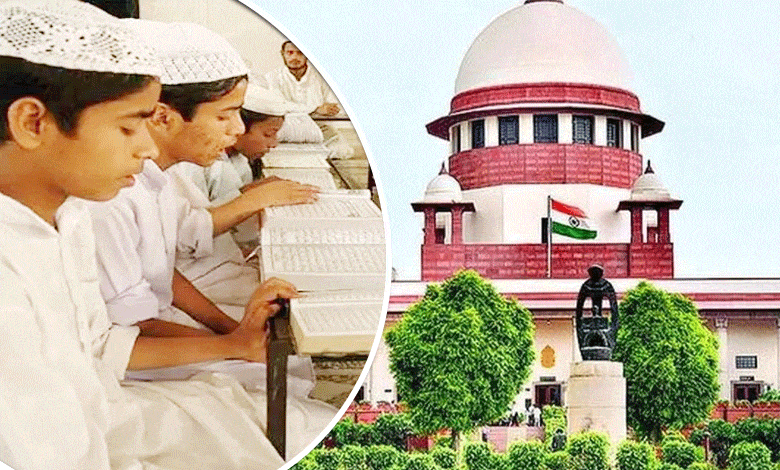Relief for Over 16,000 Madrasas in Uttar Pradesh as Supreme Court Issues Major Verdict
The bench clarified that the Act does not directly intervene in the daily administration of madrasas and aligns with the state's responsibility to provide adequate education for children. Chief Justice Chandrachud emphasized that the inclusion of religious education in madrasas does not render the law unconstitutional.

New Delhi: In a significant relief for more than 16,000 madrasas in Uttar Pradesh, the Supreme Court today upheld a 2004 law regulating their functioning. A three-judge bench led by Chief Justice of India D.Y. Chandrachud overturned an Allahabad High Court decision that had declared the law unconstitutional, citing it as a violation of secular principles. This decision had cast uncertainty over the future of approximately 1.7 million madrasa students.
The bench, which included Justice J.B. Pardiwala and Justice Manoj Misra, observed that the High Court erred in assuming that any law violating secular principles should be struck down. Chief Justice Chandrachud stated, “The state has the authority to regulate education standards… regulations on educational quality do not interfere with the administrative affairs of madrasas.”
The bench clarified that the Act does not directly intervene in the daily administration of madrasas and aligns with the state’s responsibility to provide adequate education for children. Chief Justice Chandrachud emphasized that the inclusion of religious education in madrasas does not render the law unconstitutional.
The Chief Justice further noted that the law is unconstitutional only in matters where it pertains to granting Fazil and Kamil degrees, as these provisions conflict with UGC regulations. He stated that the law aims to protect the rights of minorities in Uttar Pradesh and ensures that students complete their education and are able to secure a decent livelihood.
In its order, the court highlighted that certain sections of the Madrasa Act, specifically those related to higher education and the conferment of degrees, were deemed unconstitutional due to a lack of legislative competence. “This raises the question of whether the entire law should be annulled on this basis. In our view, the High Court erred by failing to address the issue of severability, effectively throwing out the baby with the bathwater,” the bench stated.
